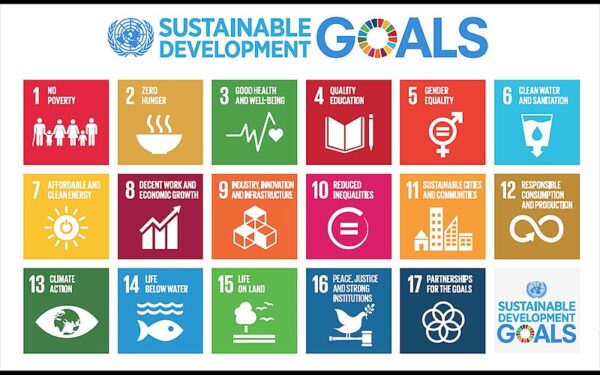By Tsering Namgyal
Non-fungible Tokens (NFTs) are being used to represent popular art, real estate, intellectual property, and a host of other applications where authenticity and proof of ownership are of vital importance.
However, extending way beyond these implementations, NFTs are now driving social change by facilitating charitable fundraising for issues ranging from female empowerment to supporting philanthropic efforts in war-torn countries like Ukraine.
This ability to fund initiatives for a wide range of socially important issues through the sale of NFTs could power the next growth phase for this booming asset class.
The ImpactNFT Alliance, which promotes NFTs that mitigates the impact of climate change, has announced that it is launching a Decentralized Autonomous Organization (DAO).
Although the NFT industry has grown by leaps and bounds into a multi-billion-dollar economy in recent months including many projects that aim to help the world, concerns abound about their consequences on the environment and climate change.
“How to launch NFTs without damaging the environment continues to be a challenge,” said Max Song, Co-founder of ImpactNFT Alliance.

Max Song: Impact NFT Alliance
Impact NFTs are defined as “a specific class of NFT designed with the intention to fund positive social, cultural, sustainable development of environmental impact. It acts as a digital asset for recording and enumerating the impact actions in the physical world,” said Joe Pan, Executive Director of the alliance.
To be specific, it aims to align the impact of NFTs with the Sustainable Development Goals (SDG) as defined by the United Nations, he added.
The ImpactNFT Alliance, which currently has 45 members, aims to help issuers of the new form of digital asset to drive engagement for sustainable development and facilitate the launch of projects focusing on impact creation.
The members include NFT projects that create social impact, Web3 organisations such as blockchain protocols, crypto exchanges and DeFi organizations interested in the intersection of Web3, NFTs and impact creation as well as service providers such as legal, marketing PR and consulting firms that support Web3 entities.
While NFT can create digital identity online but it is also mired in many challenges, least of all its impact on the environment.
“We saw environmental concerns about the environmental footprint of NFTs, which today remains a massive consideration and a challenge for any group issuing NFTs”, Song said.
For instance, World Wildlife Fund UK (WWF), which originally planned to launch an NFT, faced significant backlash from the existing community, finally leading it to cancel its NFT earlier this year, citing environmental concerns.
“Today this question about how to launch NFTs responsibly still continues to remain at the heart of some of the major discussions around using NFTs for social impact,” Song said.
“As we did our projects, there are also many challenges unique to doing impact NFTs. For those who would like to contribute to charity, they need to overcome three obstacles,” he added.
First, they have to make a beautiful piece of artwork something that catches people’s eyes. Second, they have to connect with NGO groups and social impact groups and convince them that their contribution is meaningful and trustworthy and not expose them to nefarious activities. Finally, they have to get the technology right and how to actually mint their NFTs, choose the right protocol to mint on, and go through many arduous legal and technical challenges before creating the NFTs, Song said.
“So, we started to launch ImpactNFT to broaden the scope and reach beyond our individual existences to many around the world who are similarly inspired,” Song said.
ImpactNFTs are expected to play an increasing role in enabling the “purple economy” which refers to taking account of cultural aspects in economics. It takes a cue from Diversum and United Nations Education, Scientific and Cultural Organisation (Unesco) which referred to the “purple economy” during their first conference in October 2011.
It designates an economy that adapts to human diversity across the world and relies on diverse cultural dimensions to give value to goods and services.
Advisory council members include Taiwanese legislator and crypto pioneer Jason Hsu, Katherine Foster, former diplomat and senior advisor to the Social Alpha Foundation, Web3 strategist Pedro Robledo of Argentina, Candice Burin, co-author of the Purple Paper for ImpactNFT and Jon O’Sullivan who is a director with Project Ark.
With the use of analysis and survey results, the group plans to create one of the world’s most extensive and well-researched surveys on the role of social impact from the NFT community.
“This actually can really strengthen the narrative and to allow many people who are today skeptical and curious about what NFTs can do to them to actually see that this is not only a field of random speculation and meaningless noise that it also can be a beautiful, artistic and representational place that we want to see as humans and as civilizations can find a common ground,” Song said.
In the process, the group plans to build the world’s biggest impact NFT DAO and become a trusted member in many of the important NFT groups.
Last year, in October, ImpactNFT in partnership with Project Ark and Sovereign Art Foundation, announced the launch of Asia’s first art exhibition that demonstrates how NFTs can revolutionize the way corporations meet sustainability goals and transform lives of people in marginalized communities across the world.
With additional reporting by Anjali Kochhar
SDG Image: Wikimedia Commons
About the authors
Tsering Namgyal is the chief content officer at Blockchain Asset Review.
Anjali Kochhar is a freelance reporter at Blockchain Asset Review.
